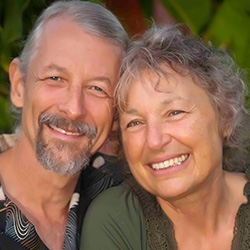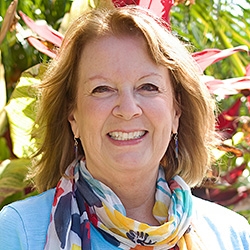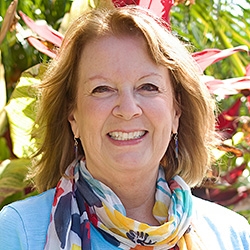

NVC Resources on Intention
-
How do you repair a relationship when your words or actions unintentionally impact another in a negative way? And what keeps you from apologizing? Join Lore to explore – and answer – these questions and more!
-
When someone's behavior costs us, we may attempt to negotiate as much as possible. After some rounds of this, if there's no change we may reach a tolerance limit. So we may set a boundary for self care and clarity about what's unworkable. But depending on intentions and the way its said, this may or may not be a punishment to get even. Here, clarity about intentions, feelings, needs, actions and dialogue may support us.
-
Jim and Jori offer practical tools to help us develop patience through a process they call WAIT: Wake up, Accept, Insight, Take a step.
-
Trainer Tip: One of the swiftest ways to close our hearts is having judgmental thinking or looking to get our way. How open are you when you're in this mode? The goal in peaceful living is to approach our relationships with an open heart. Start conversations today with an intention to connect with other people.
-
Sometimes I hear people say things like, “I didn’t do Compassionate Communication this week.” Or “I tried Compassionate Communication when I was arguing with my wife last week.” Compassionate Communication is not a thing to do, or to pull out of our bag of tricks once in a while. Compassionate Communication is a consciousness of valuing everyone’s needs and of valuing connection more than being right, winning or protecting ourselves. It is a way of living.
-
When Marshall designed NVC, he said that the purpose of it was to create a quality of connection, that inspires compassionate giving and receiving. The zero step is awakening or remembering your intention to support compassionate giving and receiving. Do this practice exercise to awaken this intention and to roleplay with it in your heart.
-
Notice when you start to defend. Is your body tensing up? Feeling desperate for the other to understand you or your intentions? Find yourself explaining your behavior, giving all the good reasons why you did what you did? Trying to convince the other of your good intentions? If so, ask yourself: “Is this what I want to be doing right now? Is this really helping?” then practice one of these eight options.
-
Exploring how to keep NVC natural and authentic without sounding mechanical or formal.
-
Join LoraKim Joyner to investigate how merging science, the social and emotional intelligence of humans, animals and other species and Nonviolent Communication can bring a greater sense of belonging and wholeness to your life, and care and justice to the lives of others.
-
Here's an inspiring story of one citizen (the author) who faced a police officer and judge in court to contest a transit ticket... and inspired structural changes in the way one aspect of New York City transit operates. She inspires change with her application of empathy for self and others, acknowledgement, connecting requests -- and an inspiring vision of understanding, shared reality and living in a city where people have some trust in one another's intentions.

Quick Links
Subscription Preferences
Stay In Touch!
Looking for ways to keep up with NVC Academy news, get special offers, free resources, or words of inspiration? Here are five ways to stay engaged:










